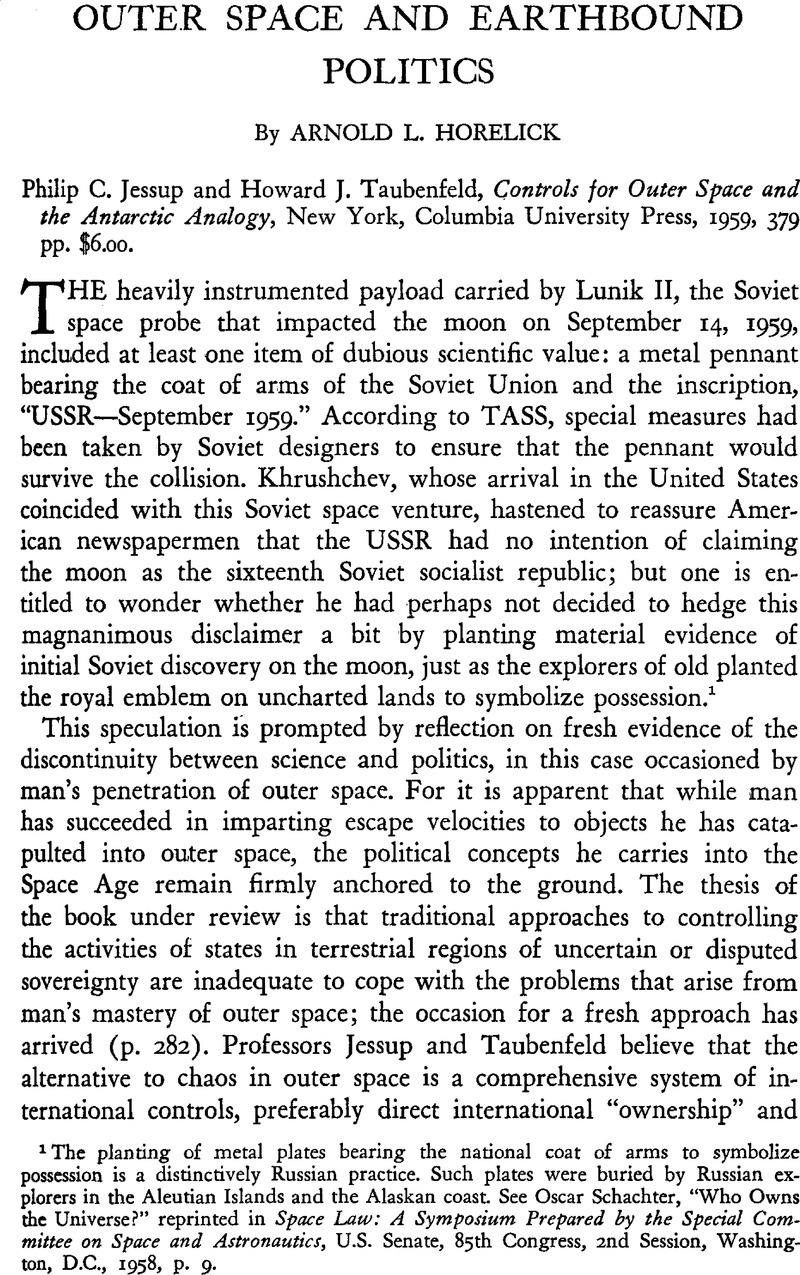No CrossRef data available.
Article contents
Outer Space and Earthbound Politics
Review products
Published online by Cambridge University Press: 18 July 2011
Abstract

- Type
- Review Articles
- Information
- Copyright
- Copyright © Trustees of Princeton University 1961
References
1 The planting of metal plates bearing the national coat of arms to symbolize possession is a distinctively Russian practice. Such plates were buried by Russian explorers in the Aleutian Islands and the Alaskan coast. See Oscar Schachter, “Who Owns the Universe?” reprinted in Space Law: A Symposium Prepared by the Special Committee on Space and Astronautics, U.S. Senate, 85th Congress, 2nd Session, Washington, D.C., 1958, p. 9.
2 For an extensive examination of some of the possible international implications of outer space during the next twenty-five years, see Knorr, Klaus, “On the International Implications of Outer Space,” World Politics, XII, No. 4 (July 1960), pp. 564–84.CrossRefGoogle Scholar Seeg also Goldsen, Joseph M., International Political Implications of Activities in Outer Space: A Report of a Conference, The RAND Corporation, Report R-362-RC, May 5, 1960.Google Scholar
3 Pravda, November 19, 1957.
4 See American Bar Association, Section of International and Comparative Law, 1959 Proceedings, Chicago, American Bar Center, 1960, p. 219.
5 For example, in a recent Soviet article on the legal problems of outer space, the United States was attacked for seeking, by means of the Discoverer program, to create evidence of “customary norms of law” that would sanction the use of “provocative” and “aggressive” reconnaissance satellites; five pages later, the United States was condemned for attempting to exploit the agreement in principle that outer space should be confined to peaceful uses in the interests of securing a ban on rocket weapons, “which are a main element in the defensive system of the Soviet Union.” (Kovalev, F. N., Cheprov, I. I., “On Working out the Legal Problems of Outer Space,” Sovetskoe Gosudarstvo i Pravo, No. 7, July 1960, pp. 132 and 137.)Google Scholar
6 See U.N. Document No. A/4141, July 14, 1959. The U.N. report is summarized in Controls for Outer Space on pp. 259–64.


